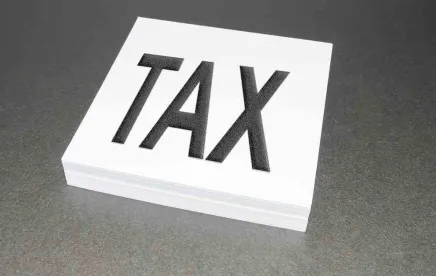The taxation of non-fungible tokens (NFTs) is still something of a mystery. All we have to go on is the IRS definition of digital assets and Notice 2023-27. The IRS digital asset definition includes NFTs, stating that they are a “digital representation of value which is recorded on a cryptographically secured digital ledger or any similar technology.”[1] Notice 2023-27 suggests that certain NFTs are taxed as “collectibles.”[2]
Even without any more government guidance, the tax treatment of NFT creators should be fairly straightforward.
People who create NFTs by recording the tokens on a blockchain are often referred to as creators, and they include major companies, artists, musicians, celebrities, influencers, athletes, sports fans, collectors, and authors. Sometimes creators mint NFTs for fun, but NFTs offer creators an opportunity to develop, market, and control the future of many types of digital content. Using blockchain also allows them to position their products for the future metaverse.
When a creator mints an NFT, it should not, under any tax principles, be a taxable event. The creation of an NFT does not arise from or represent the sale or exchange of property.[3] By analogy, under the IRS analysis for convertible cryptocurrency set out in Notice 2014-21, an NFT is likely to be taxed as property.[4] The creator should thus have a taxable event when an NFT is sold or exchanged for real currency, cryptocurrency, a digital token, another NFT, or any other property. (When a buyer pays for an NFT using property, rather than real currency such as the U.S. dollar, the transaction is taxed as a “barter transaction.” As a result, the buyer, not just the seller, has a taxable event upon the transaction.)
Determining if an NFT is Taxed as an Ordinary or Capital Asset
Whether an NFT sale triggers ordinary or capital gain or loss turns on whether the NFT is an ordinary or capital asset in the hands of the creator. There are two possible ways in which an NFT could be an ordinary asset in the hands of its creator.
First, an NFT is likely to be an ordinary asset if the NFT result from the creator’s personal efforts or it is prepared or produced for the creator. An NFT is an ordinary asset if it is “a patent, invention, model, design (whether or not patented), a secret formula or process, a copyright, a literary, musical, or artistic composition, a letter or memorandum, or similar property.”[5]
The second way in which an NFT is likely to be treated as an ordinary asset is if it is part of the creator’s stock in trade, of a kind of property included in inventory, or held for sale to customers in the ordinary course of the creator’s trade or business.[6] The easiest way for a creator to fall into this category is for the creator to be in the business of selling NFTs to customers.
Let’s look at the tax implications of NFT creators selling their NFTs to customers. A recent press release touted a new “box office” for Super Tickets.™ Sports Illustrated Tickets has partnered with “Web3 leader ConsenSys” to sell such tickets to sporting, music, and theater events “powered by Polygon’s blockchain technology.”[7] The platform allows “owners, organizers and hosts the ability to create, manage, and promote the sale of a wide range of tickets.”
Owners, organizers, and hosts of events who sell tickets in the form of NFTs to customers should receive ordinary income under Code §1221(a)(1). Moreover, the ordinary and necessary expenses paid or incurred by such owners, organizers, and hosts in carrying on the trade or business of creating and selling tickets in the form of NFTs should be deductible.[8] Those expenses would include the costs of creating the NFT, adding the NFT to a blockchain, and all expenses incurred for the sale of the NFT. The creator’s tax basis would be determined by reference to costs and expenses incurred in creating the NFT.[9]
What Happens When Creators Sell or Exchange NFTs?
A creator realizes gain or loss upon the sale of an NFT. The amount of the gain or loss is the difference between the value of the cash or property received and whether the tax sales amount is more or less than the taxpayer’s adjusted tax basis in the NFT.[10]
Rules for computing the amount of gain or loss are contained in Code §1001 and the regulations issued under that section. As intangible assets, the tax basis of certain NFTs can be amortized but it is not available to creators of NFTs.[11] Only NFT holders who have acquired those NFTs for sale or exchange in their trade or business can amortize their basis in the NFTs. This does not apply to creators of NFTs.
When the Installment Method or Licensing and Royalties Apply
In an installment sale, the seller of the property receives at least one payment in a tax year after the sale occurs.[12] Reporting income on the installment method might be available to NFT creators who meet the requirements for installment reporting. These requirements are set out in Code §453 and the regulations issued under that section. As an initial matter, the seller cannot be a dealer and the NFTs cannot be inventory. Thus, the creator is not eligible for the installment method if the creator is a dealer or the NFTs are inventory.
Some or all of the copyright and intellectual property rights associated with an NFT are often retained by the creator. This means that an NFT’s metadata will include information about copyright ownership, license fees, and the situations when and whether any royalties are due. As a result, an NFT purchaser only obtains the copyright or other intellectual property if the rights were explicitly transferred to the purchaser as part of the NFT purchasers.
To encourage secondary market transactions, more NFT creators are transferring some or all of the license and royalty payments to subsequent purchasers. When the NFT creator receives royalties and license fees as additional revenue, these amounts are ordinary taxable income.[13]
[1] https://www.irs.gov/businesses/small-businesses-self-employed/digital-assets
[2] The IRS defines collectibles in Internal Revenue Code §408(m). Examples of collectibles include art, rugs, antiques, metals, gems, stamps, coins (with certain exceptions for gold, silver, and platinum coins), alcoholic beverages, musical instruments, historical objects, or other tangible personal property defined by the IRS.
[3] Code §§61(a)(3), 1001.
[4] 2014-16 I.R.B. 938.
[5] Code §1221(a)(3)(A).
[6] Code §1221(a)(1).
[8] Code §162.
[9] Code §1221(a)(3)(C).
[10] Treas. Reg. §1.61-(a).
[11] Code §197.
[12] Code §453(b).
[13] Code §1221(a)(3).




 />i
/>i


